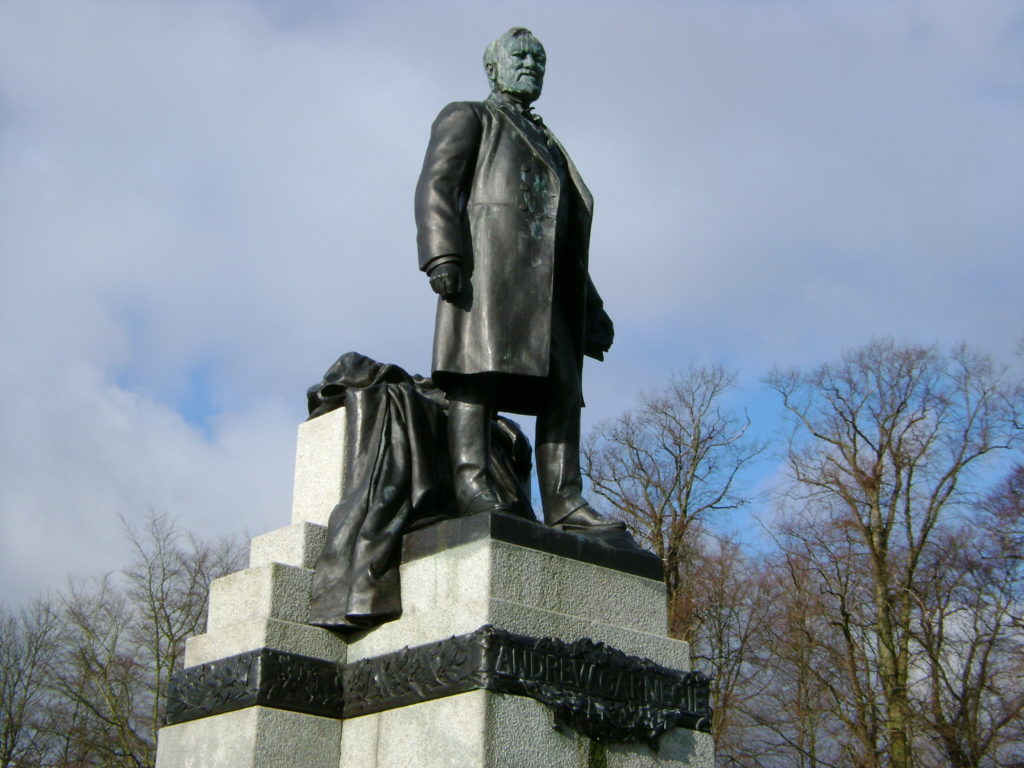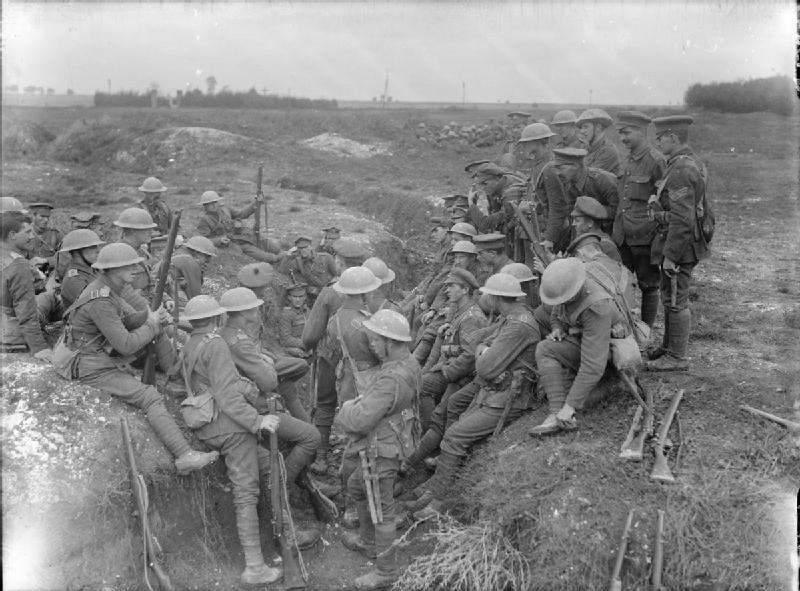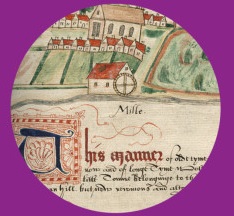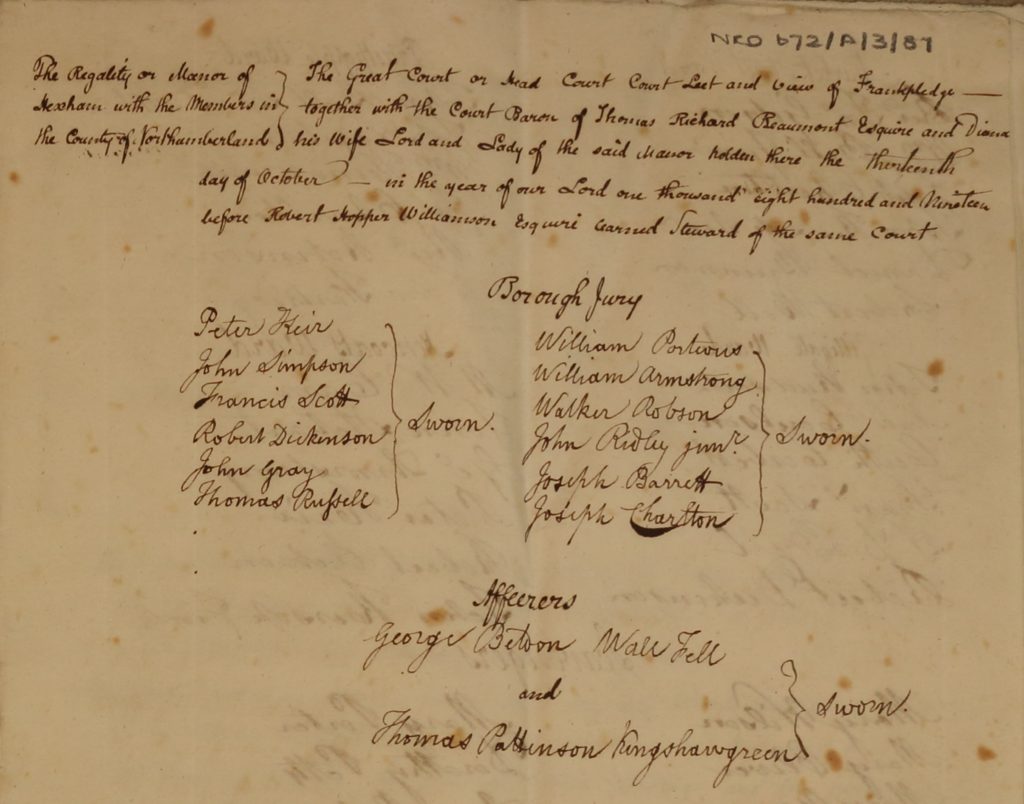In the Buglass Family blog posts, we will show how one Northumbrian family’s story can be pieced together using various resources. As well as focusing on family history, we will look at military history in the context of two members of a family who were directly involved in the First World War. The Buglass Collection, NRO 05944, was gifted to the Northumberland Collections Service in 2002. The collection spans from 1862 to 1978 and comprises records such as letters, sale catalogues, newspaper cuttings, and financial records regarding the Buglass and Anderson families of Northumberland.
By looking at the 1901 Census, we can see that the family are listed as living at East Deanham – New Deanham had been mistakingly recorded. George was the head of the family, a farmer, born in Scotland. His wife Elizabeth (or Lizzie) Buglass nee Anderson was born in Northumberland. They had five children:
Andrew, 7 years, a Scholar, born in Kirkharle c.1894
George Anderson, 6 years, a Scholar, born in Kirkharle c.1895
Ralph, 4 years, born in Longhorsley c.1897
Thomas, 2 years, born in Longhorsley c.1899
Elizabeth Ellen, no age on the census, so presumably had just been born in Longhorsley.
Also living in the house are George Buglass’ parents, Andrew and Elizabeth, and there are three workers present at the farm – Isabella Monaghan, general servant; Joseph Johnson, cattleman; and John Gilmore, agricultural labourer.
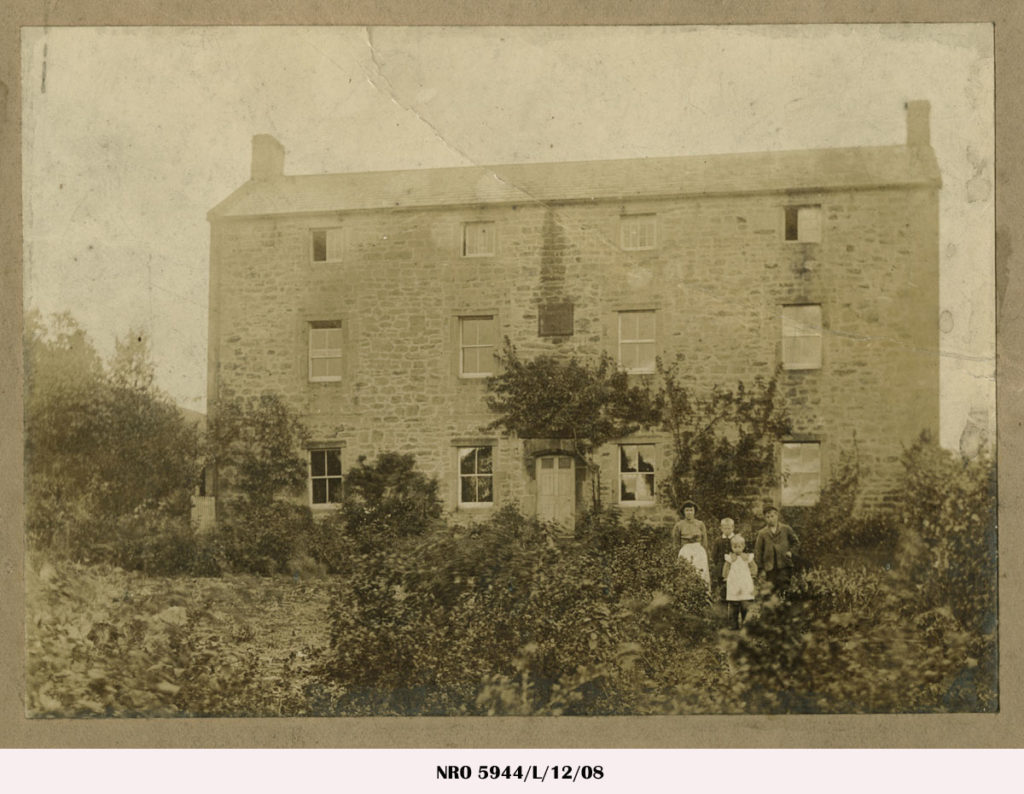
This photograph, taken around 1907, shows Lizzie with three of her five children – George, Betty and Andrew – outside their family home at New Deanham. But the Betty in the photograph is not the Elizabeth Ellen that we saw on the census. We know from a memorial card in the collection that Elizabeth Ellen died at New Deanham ten days after the census was taken, on 10th April 1901, aged 13 months.
By the time the Buglass family came to occupy the New Deanham property, it formed part of the Bolam Estate owned by Lord Decies, an Irish baronet who owned property in England. Prior to this it had formed part of the estates of the old Northumberland families of Loraine and Swinburne. An 1893 Inland Revenue Return from the Lord Decies estate papers contains information that was used to calculate death duties payable upon the estate. The document reveals that the New Deanham property was a freehold and was, at the time of the return, in the tenure of Richard Maule. The rental value of the properties referred to suggests that New Deanham was the most extensive of the properties.
Although the Buglass family lived in New Deanham from c.1901, they were freehold tenants until the farm was sold in 1934 by Mr. F.B. Atkinson of Newcastle upon Tyne. The family bought the farm with the help of one of Elizabeth’s brothers.

The five surviving children all attended Cambo School, and we can find details of their achievements in the school Log Book that is held here in the Archives. From 1904 the children were constant winners of various school prizes, mainly for writing, drawing and attendance. The image shows a page from the log book which dates from 1894 to 1921. It shows the two scholarships won by Andrew Buglass in 1908 – the County Council Scholarship and the Trevelyan Scholarship, which he shared with another male pupil.
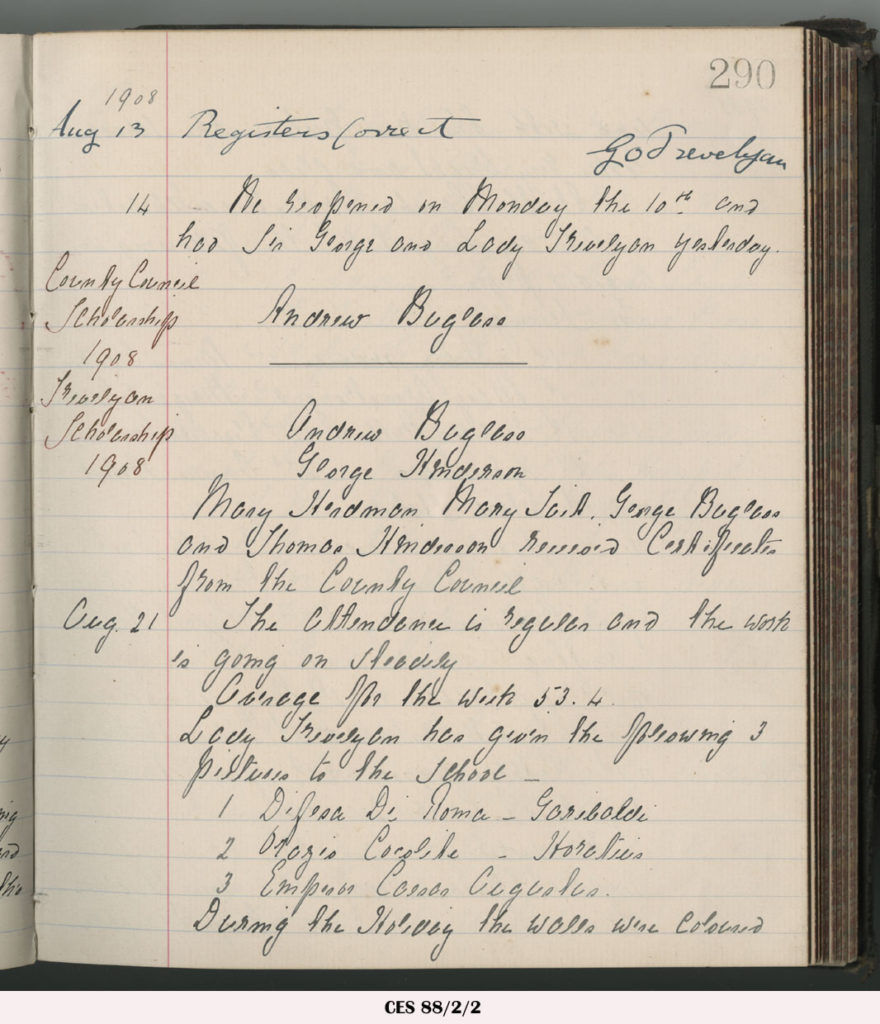
Both Andrew and Ralph Buglass went on from Cambo School to attend Rutherford College in Newcastle upon Tyne. The College Committee were prepared to admit the sons of farmers and farm-workers at nominal fees, and without fees entirely the orphans of farm labourers. This explains why Andrew and Ralph, who did not come from a family that could obviously afford this sort of education, were able to attend such an institution. The family may also have been helped by financial assistance received from the scholarships they won at Cambo School.
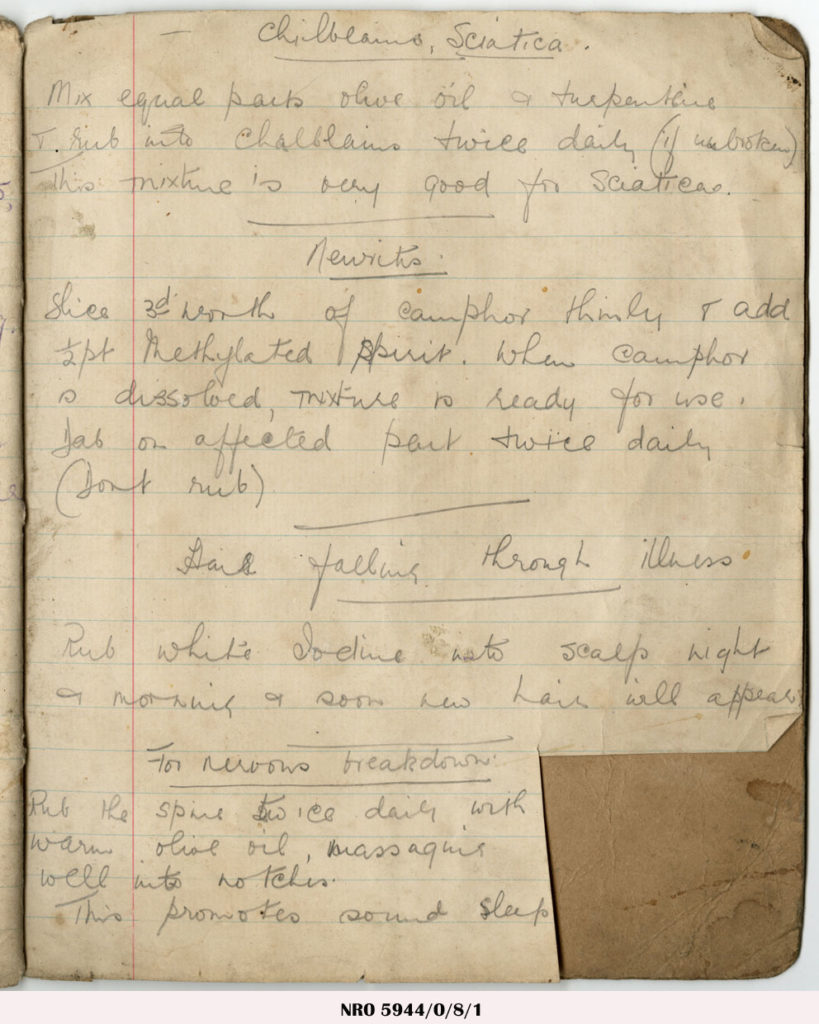
Betty, the youngest child, won awards at school for subjects such as sewing. One of her exercise books is held within the Collection and is full of recipes and traditional cures for illnesses and ailments such as chilblains. She has also helpfully recorded the cure for a nervous breakdown! As Presbyterians, the children were involved in the Cambo and District Band of Hope temperance organisation for working-class children, which was founded in 1847 in Leeds. Members took a pledge of total abstinence and the children were taught the ‘evils of drink’, and would attend weekly lectures and activities.
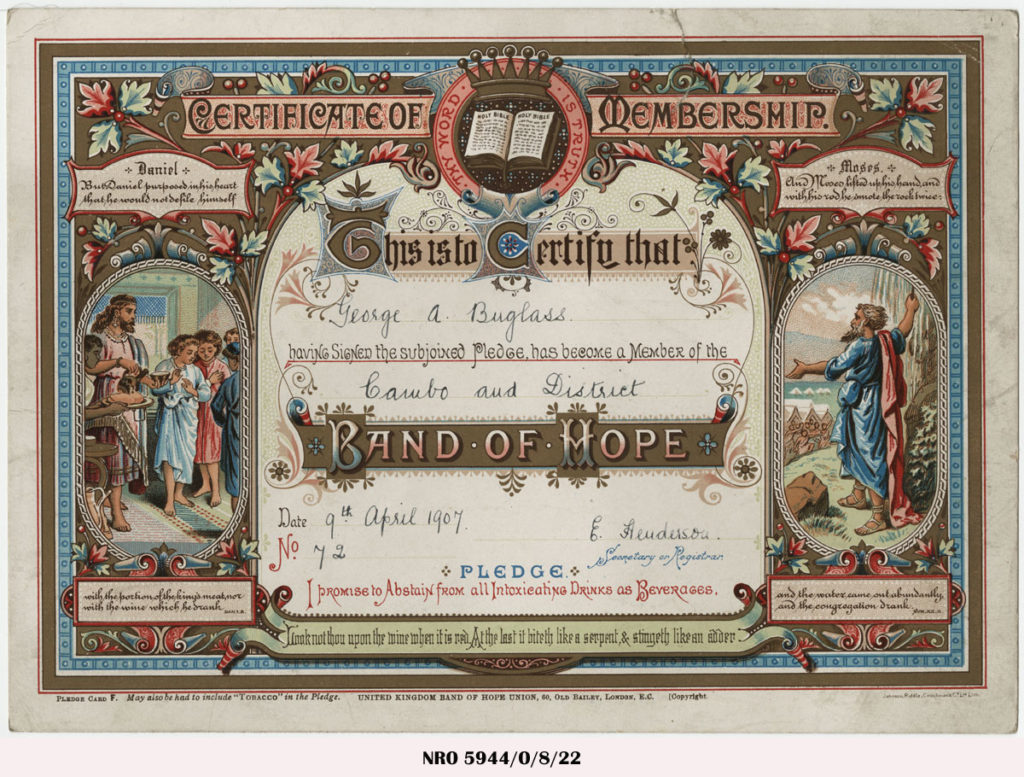
George seemed to follow in his forefather’s footsteps and was preparing to become a shepherd. In April 1914 he writes to his father from Shepherd Shield in Wark that he has been delivering lambs and feeding cattle. This seemingly tranquil traditional lifestyle was to be shattered by the beginning of the war on 4th August 1914, and the subsequent involvement of the family.
This story will be continued in part two of this blog.


